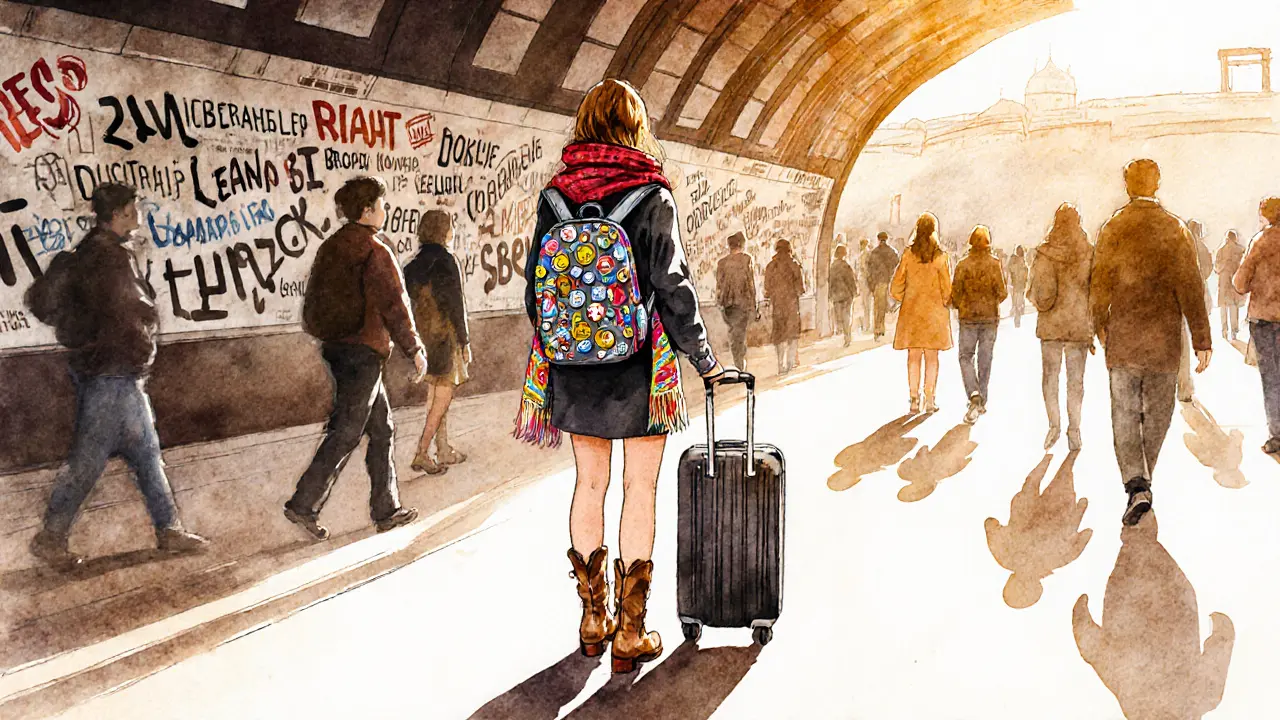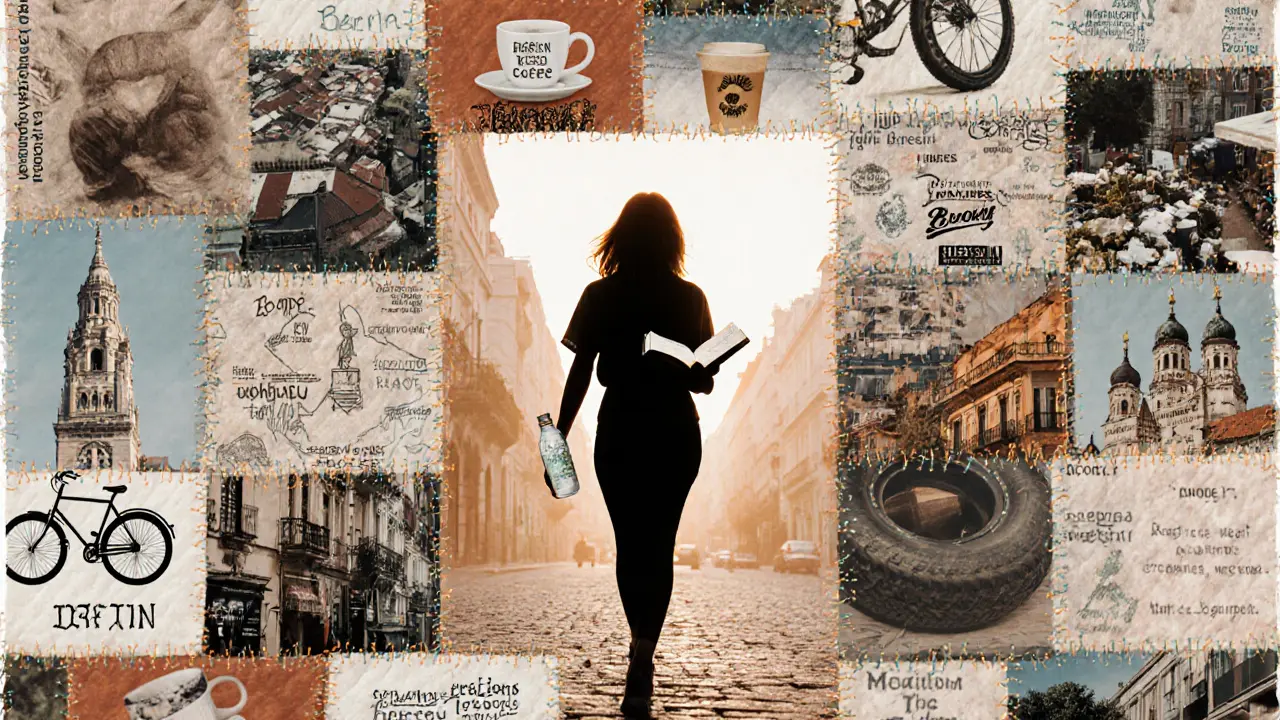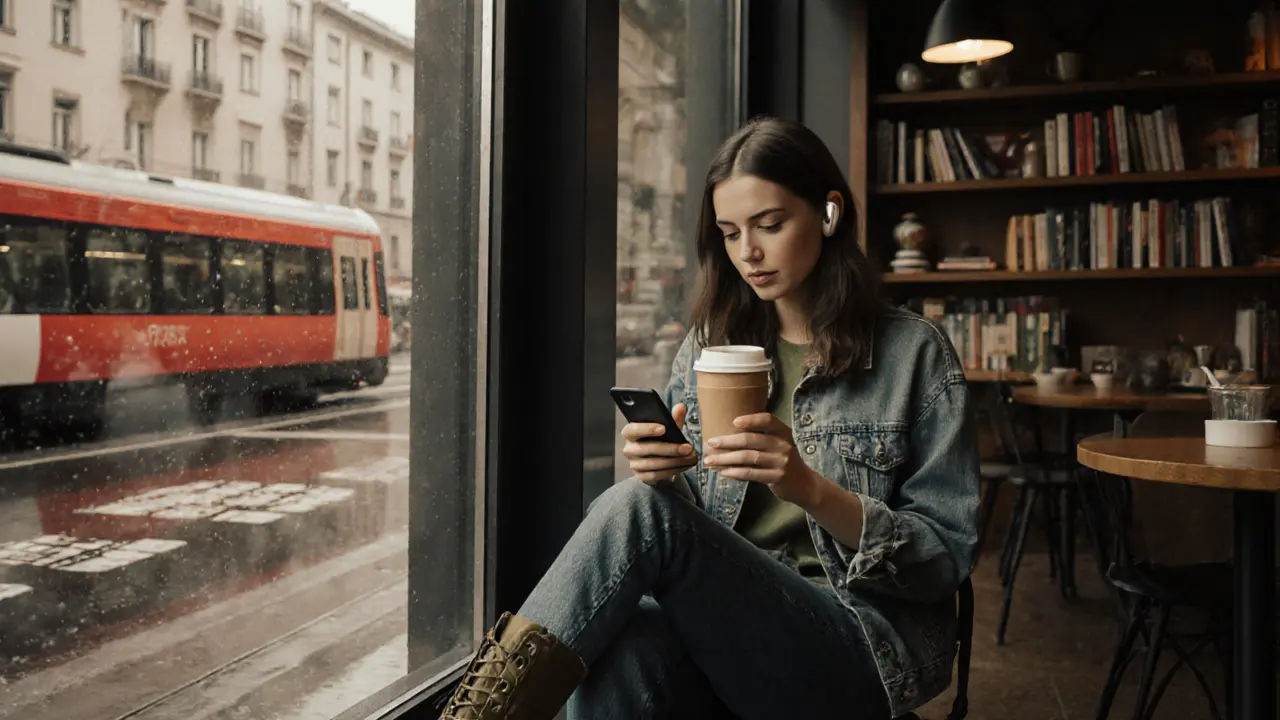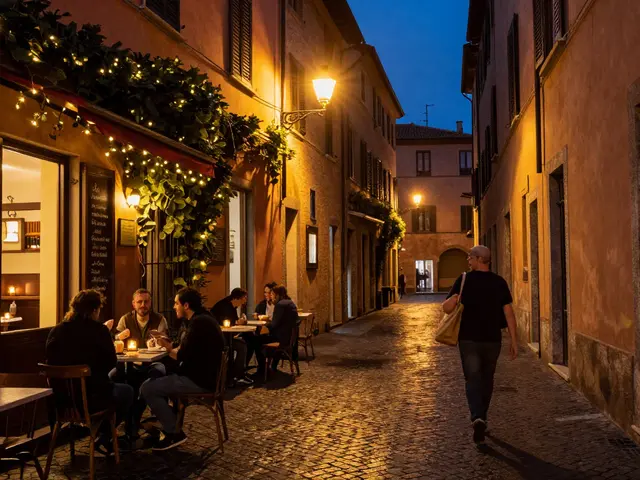The term Eurogirl isn’t a formal label you’ll find in textbooks or government surveys. It’s not a nationality, a job title, or a fashion brand. But if you’ve spent time in Berlin cafes, Lisbon street markets, or Prague train stations over the last decade, you’ve seen her-whether you called her that or not. She’s the young woman walking with a reusable coffee cup, wearing vintage denim and chunky boots, scrolling through her phone while listening to a Polish indie band on Spotify. She might be studying sociology in Amsterdam, working remotely from a co-working space in Budapest, or teaching English in Barcelona. She doesn’t fit one mold. And that’s the point.
What Does ‘Eurogirl’ Really Mean?
Eurogirl emerged as an informal cultural shorthand, not a stereotype. It’s not about beauty standards or wealth. It’s about a shared set of behaviors, values, and attitudes shaped by life in post-2000 Europe. Think of it as the cultural fingerprint of a generation raised on the EU, the internet, and climate anxiety.Unlike the ‘American girl’ or ‘Asian girl’ tropes that often reduce identity to appearance or consumer habits, Eurogirl is defined by mobility, adaptability, and skepticism. She grew up with the euro as her first currency. She’s never known a Europe without Schengen. She’s taken budget flights to five countries before turning 20. She knows how to read a train schedule in three languages and can order a coffee in Italian, French, and Dutch without sounding like a tourist.
Her identity isn’t tied to one country. It’s tied to experience. She doesn’t say ‘I’m from Germany’-she says ‘I lived in Leipzig for two years, then moved to Lisbon because the rent was half and the light was better.’
The Roots: How the EU Shaped a New Generation
The modern Eurogirl didn’t appear out of nowhere. She’s the product of decades of policy, migration, and digital connectivity. After the 2004 EU expansion, millions of young people from Eastern Europe moved west-not just for work, but for education, freedom, and exposure. At the same time, Western European youth began traveling east, drawn by lower costs and richer histories.
By 2015, Erasmus+ had sent over 3 million students abroad. Many stayed. Cities like Krakow, Riga, and Sofia became hubs for digital nomads, artists, and freelancers. The result? A blended youth culture where a Romanian girl in Copenhagen might cook Ukrainian borscht while listening to a Swedish podcast and posting photos in Georgian script on Instagram.
This isn’t just tourism. It’s cultural osmosis. Language barriers blurred. Food traditions mixed. Political views evolved through direct exposure. The Eurogirl doesn’t just accept diversity-she expects it. She doesn’t see a ‘foreigner’ when she meets someone from Bulgaria or Latvia. She sees someone who’s been where she’s been.
Style Without Borders
Her wardrobe tells a story. No branded logos. No fast fashion hauls. She shops at thrift stores, local markets, and online resale platforms like Depop or Vinted. Her coat might be from a flea market in Belgrade, her boots from a cobbler in Prague, her scarf handwoven by a grandmother in Transylvania.
She doesn’t follow trends. She curates. She wears what feels right-layered knits in winter, bare feet in summer, oversized shirts that look like they’ve been borrowed from a boyfriend. She doesn’t care about ‘matching’ outfits. She cares about texture, fit, and history.
Her makeup is minimal. Her hair is often natural-curly, braided, or buzzed. Tattoos are common, but not for shock value. They’re personal: a line from a Polish poem, the date her grandmother passed, the coordinates of the first city she lived in alone.

Values: Sustainability, Autonomy, and Quiet Rebellion
The Eurogirl doesn’t shout her beliefs. She lives them.
- She carries a refillable water bottle because single-use plastic feels wasteful, not because it’s trendy.
- She bikes to work even when it rains-not because she’s eco-conscious in a performative way, but because she’s seen how car-centric cities choke on pollution.
- She supports small businesses, not because it’s Instagrammable, but because she’s seen how chains erase local character.
- She says no to overtime, to toxic workplaces, to relationships that drain her. She values time more than money.
She doesn’t idolize capitalism. She doesn’t reject it either. She navigates it like a system she’s learned to hack. She works freelance. She trades skills. She barter-learns Spanish for help fixing her bike. She uses open-source tools, not because she’s a tech geek, but because proprietary software feels like a cage.
Language: The Glue That Holds It Together
She speaks English fluently-not because she was forced to, but because it’s the easiest way to connect with people from Poland to Portugal. But she also speaks at least one other language. Maybe it’s her mother tongue. Maybe it’s the one she picked up while living in Lyon. Maybe it’s a dialect her grandparents used that she’s trying to revive.
She doesn’t just translate words. She translates culture. She knows that ‘sprechen Sie Deutsch?’ means more than ‘do you speak German?’-it’s an invitation to share a memory. She understands that ‘ciao’ in Italy isn’t just goodbye-it’s a warmth you don’t find in ‘goodbye’.
She’s fluent in silence too. In crowded metros, she knows when to nod, when to smile, when to look away. She’s learned that not every connection needs words.

Where She’s Going Next
The Eurogirl isn’t a passing trend. She’s becoming the new norm. In 2025, over 60% of Europeans under 30 have lived or worked in another EU country. More than half say they feel ‘more European than national’ in their identity.
She’s not waiting for permission to belong. She’s building her own version of home-on trains, in shared apartments, in digital communities. She doesn’t need a passport stamp to feel connected. She carries Europe in her habits, her language, her choices.
She’s not perfect. She’s tired sometimes. She’s overwhelmed by politics. She’s lonely in big cities. But she keeps moving. She keeps learning. She keeps choosing kindness over convenience.
If you meet her, don’t ask where she’s from. Ask where she’s been. And then listen.
Related Cultures and Influences
The Eurogirl doesn’t exist in isolation. She’s shaped by and connected to other global youth cultures. Her vibe overlaps with the Nordic minimalists in Copenhagen, the digital nomads in Bali, the street artists in Mexico City. But she’s distinct because her roots are in the EU’s unique blend of history, bureaucracy, and freedom.
She’s influenced by:
- Scandinavian design-clean lines, functional beauty
- Eastern European resilience-making do, valuing community
- Southern European slowness-long meals, afternoon walks, no rush
- Western European activism-climate strikes, housing rights, gender equality
She doesn’t copy these cultures. She weaves them. Like a patchwork quilt stitched from threads found in five different countries.
Common Misconceptions
People often mistake the Eurogirl for:
- A rich traveler-many live on part-time jobs and student loans
- A trend follower-she avoids trends that feel performative
- A tourist-she’s lived in places longer than most tourists visit
- A political activist-she’s not protesting every day, but she votes, signs petitions, and supports causes quietly
She’s not a symbol. She’s a person. And she’s everywhere.
Is ‘Eurogirl’ a real identity or just a social media trend?
It’s both. The term started online, but it reflects real, measurable shifts in how young Europeans live. Surveys by the European Youth Forum show over 58% of 18-29-year-olds identify more with being European than just their nationality. The label stuck because it describes something genuine-not a filter, but a lifestyle shaped by mobility, shared values, and digital connection.
Do you have to be female to be a Eurogirl?
The term ‘Eurogirl’ is gendered by language, but the culture isn’t. Many men, non-binary, and gender-nonconforming people live exactly the same way-moving across borders, valuing sustainability, embracing multilingualism. Some call themselves ‘Eurokid’ or ‘Europerson,’ but the core traits are the same. The label is just one way to name a shared experience.
Can someone become a Eurogirl, or do you have to be born into it?
You don’t need to be born in Europe to adopt this way of life. Many non-Europeans who’ve lived long-term in Europe-students, artists, remote workers-embody the same values: mobility, adaptability, sustainability, and cultural curiosity. What matters isn’t your passport. It’s your habits. Do you bike instead of drive? Do you learn the local language? Do you support small businesses? If yes, you’re already part of it.
Is the Eurogirl lifestyle only for people in big cities?
No. While cities like Berlin and Lisbon are hubs, the same mindset exists in smaller towns. A young woman in Cluj-Napoca, Romania, or Ljubljana, Slovenia, might live the same way: working remotely, cycling to the market, reading in a park, traveling on weekends. It’s not about location-it’s about intention. You can be a Eurogirl in a village if you choose connection over convenience.
How is the Eurogirl different from a digital nomad?
Digital nomads often move for work flexibility. The Eurogirl moves for life. She might work remotely, but she also works in cafes, teaches language exchange, volunteers, or runs a small craft stall. Her mobility isn’t just about escaping rent-it’s about experiencing different ways of living. She’s less focused on ‘working from anywhere’ and more focused on ‘living everywhere.’





